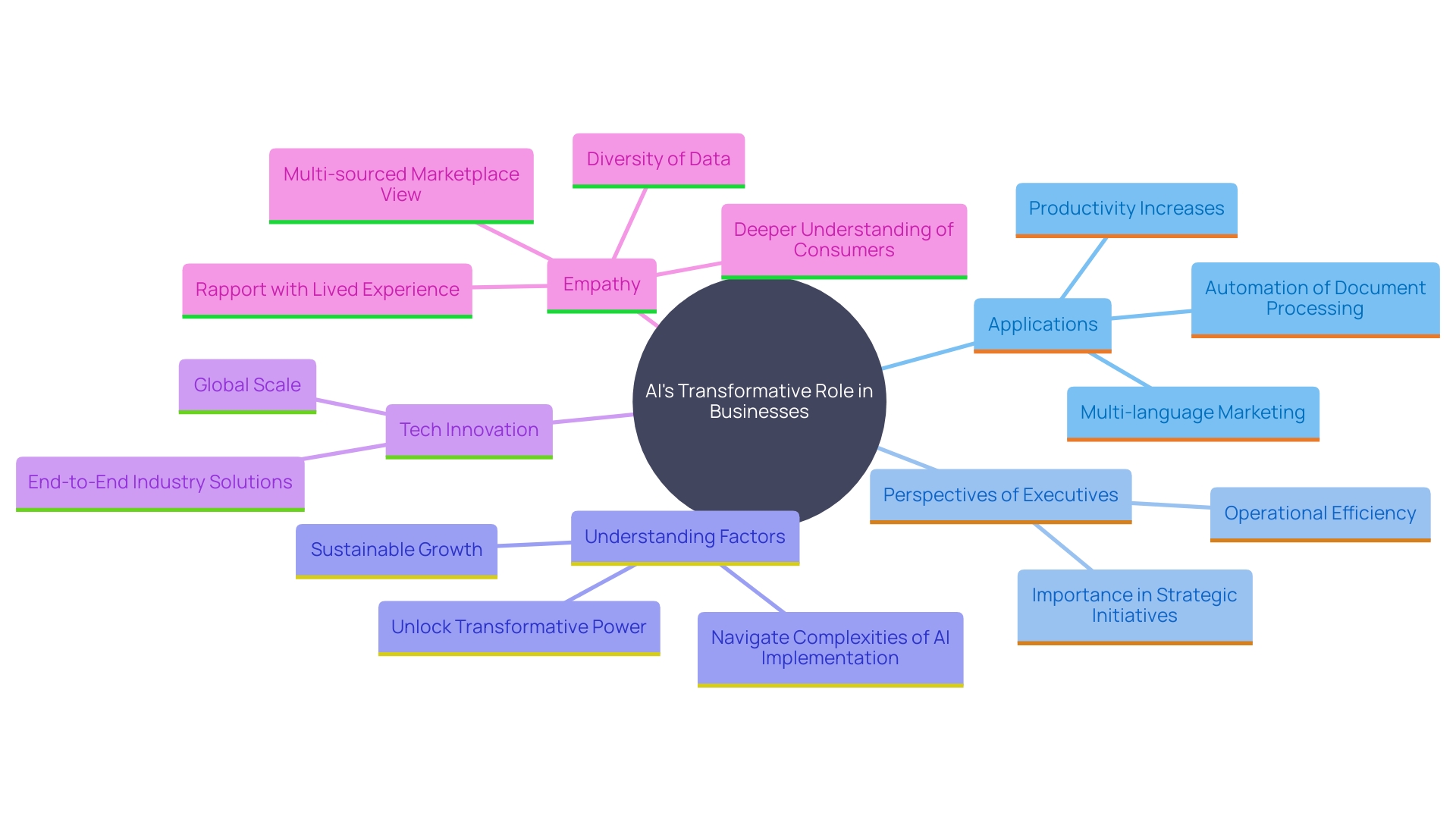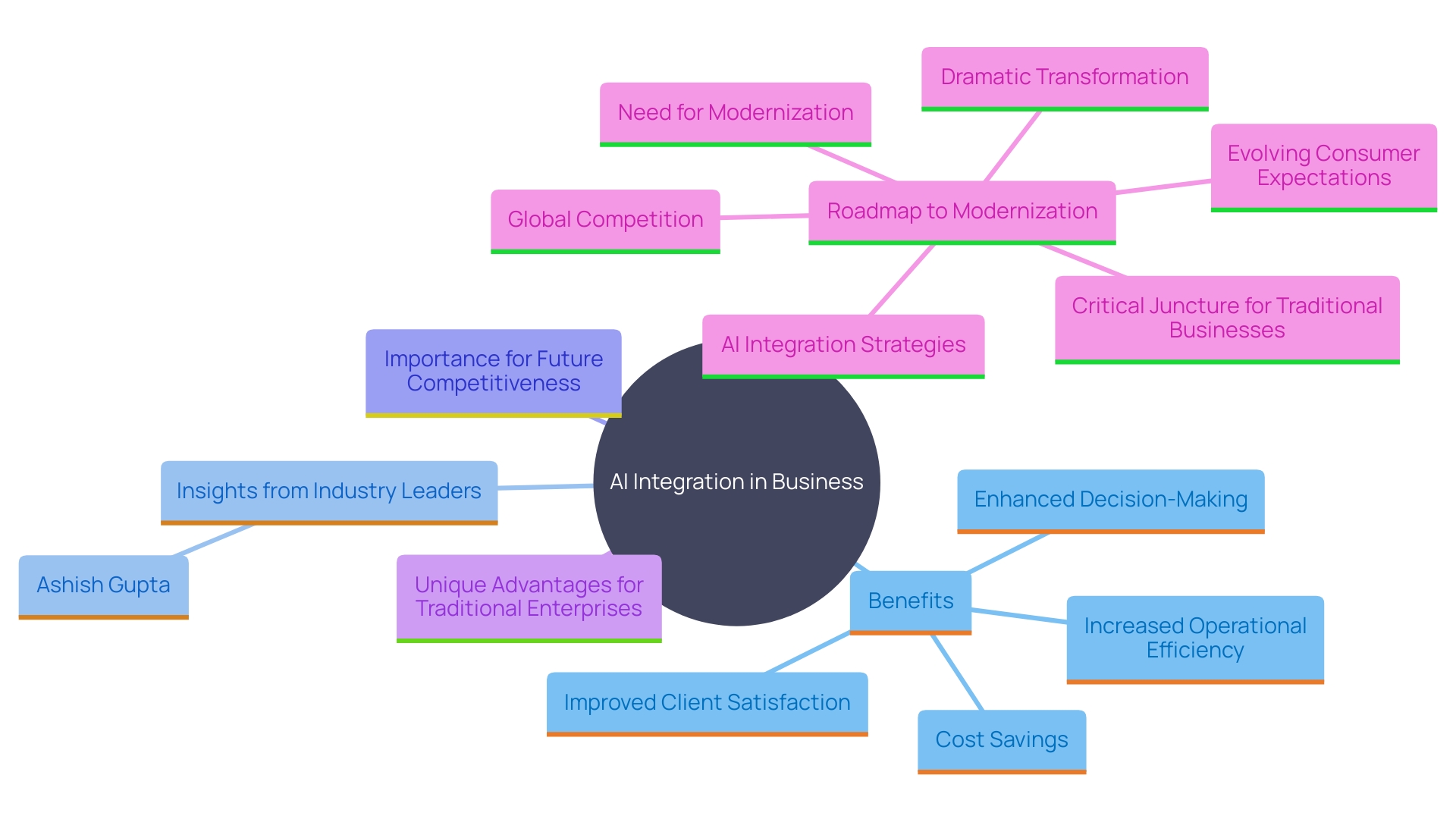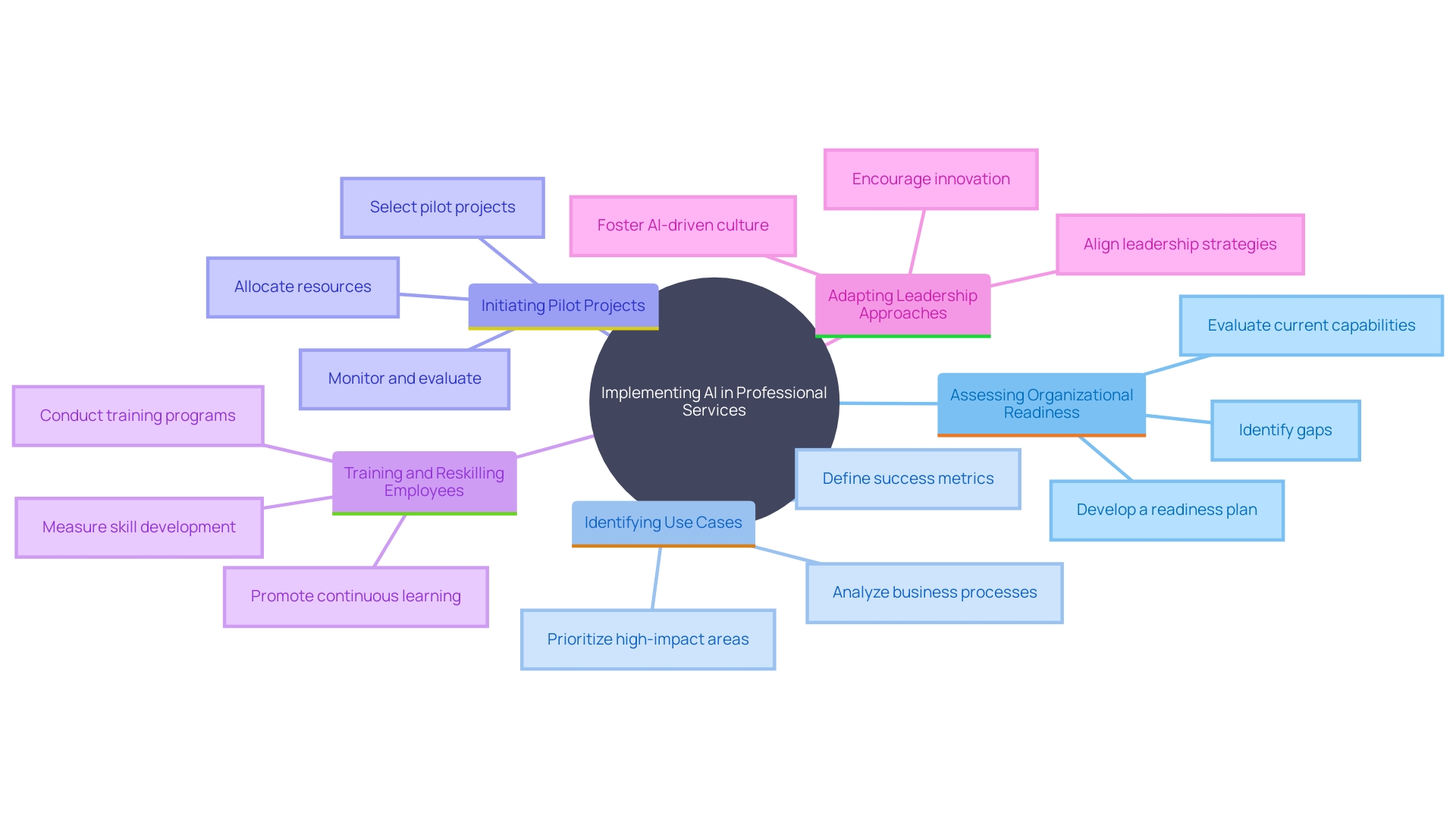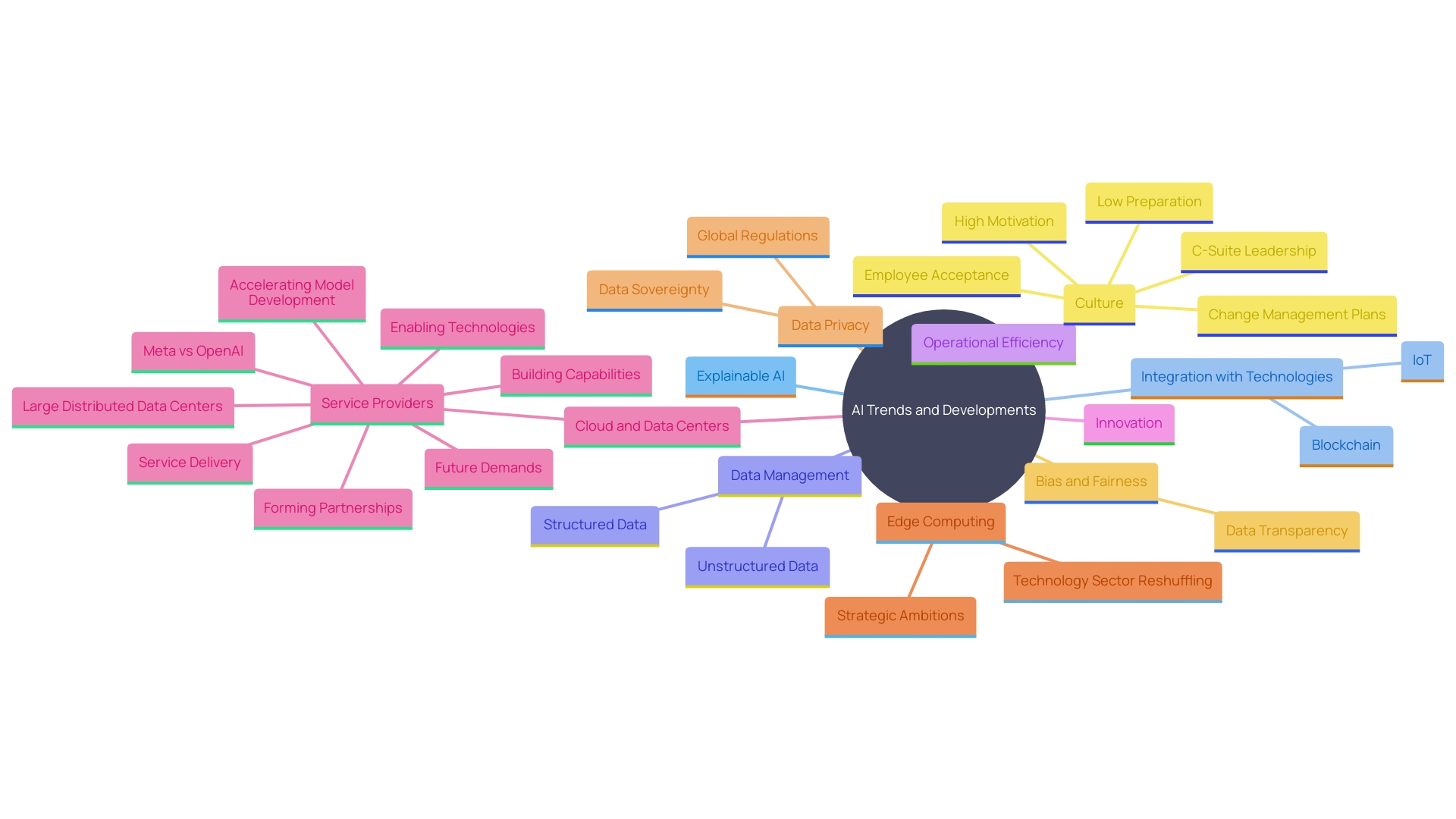Introduction
Artificial Intelligence (AI) is no longer a futuristic concept; it is a present reality reshaping the business landscape across various sectors. From automating mundane tasks to providing deep data insights, AI is unlocking unprecedented levels of efficiency and innovation. Take Holiday Extras, for example, where AI seamlessly manages multi-language marketing content and automates the extraction of critical data from thousands of documents, freeing employees to focus on more strategic activities.
This transformative power of AI extends beyond operational efficiency; it fosters a data-driven culture that enhances decision-making and customer experiences.
Executives are increasingly viewing AI as a crucial driver of innovation and risk management, with significant productivity gains reported in core business processes like customer service, research and development, and procurement. As AI becomes integral to strategic initiatives, businesses are poised to benefit from more personalized and cost-effective deployment of marketing and sales resources. The optimism surrounding AI’s potential is not unfounded; its integration is seen as essential for maintaining competitiveness and driving long-term growth.
For traditional businesses, the adoption of AI leverages their domain expertise, established data sets, and strong brand reputation to develop better products and marketing strategies. Companies like Iron Mountain and Infosys illustrate how effectively integrating AI can solve existing problems, boost efficiency, and support revenue growth. Ultimately, embracing AI not only streamlines operations but also cultivates a culture of continuous innovation and data-driven decision-making, essential for thriving in today’s dynamic market.
The Transformative Power of AI
Artificial Intelligence (AI) is changing contemporary enterprises by automating processes, improving decision-making, and providing individualized client experiences. For instance, Holiday Extras uses AI to manage multi-language marketing content efficiently across diverse regions, from German to Polish. This approach is not confined to marketing alone; customer support and other departments benefit from AI-driven scalability and data fluency.
AI’s ability to analyze vast datasets swiftly and accurately is pivotal. At Holiday Extras, AI automated the extraction of key values from over 2,000 PDF documents, freeing up valuable time for employees to engage in more creative and meaningful tasks. This automation not only boosts efficiency but also fosters a more data-driven culture across traditionally qualitative functions, like design.
The incorporation of AI in companies has been associated with productivity increases of 30-40%, as noted at Davos. Executives regard AI as a catalyst for innovation and enhanced risk management, with a minimal impact on individual roles but a significant transformation in operational activities. Leaders are observing 62% of Ai’s value produced in essential operational processes, encompassing client support, research and development, and procurement.
Moreover, AI is key to strategic initiatives, driving long-term growth and innovation. A Marketbridge survey revealed that 52% of C-suite executives see AI as essential for deploying marketing and sales resources more cost-effectively and positioning solutions more personally and relevantly. This sentiment highlights the optimism surrounding AI’s potential to transform the commercial environment.

Key Benefits of AI Integration
Incorporating AI into business functions provides numerous advantages, such as increased operational efficiency, cost savings, and better client satisfaction. AI systems can streamline workflows by automating repetitive tasks, freeing employees to focus on higher-value activities. This leads to more informed decision-making and improved client experiences, ultimately giving companies a competitive edge in a rapidly changing market.
Ashish Gupta, global head of client support at Iron Mountain, emphasizes the significance of addressing current issues with AI. Iron Mountain utilized AI to manage a higher volume of customer care cases, significantly boosting efficiency and supporting anticipated revenue growth. Gupta emphasizes that utilizing data and tools effectively is crucial for achieving these outcomes.
In the wider commercial environment, AI integration is viewed as an essential element for future competitiveness. A Marketbridge survey reveals that 52% of C-suite executives and marketing leaders in B2B companies find AI instrumental in deploying marketing and sales resources more cost-effectively. Additionally, AI-driven insights significantly aid in positioning solutions in a more personalized and relevant manner, directly enhancing market positioning.
Traditional enterprises also possess unique advantages when adopting AI, such as domain expertise, established data sets, and strong brand reputation. These factors enable them to harness Ai’s potential more effectively, leading to better product development and marketing strategies. As Infosys, a leader in digital services, notes, AI and cloud technologies are essential for navigating digital transformation and creating new opportunities for enterprises and communities.
Ultimately, the successful integration of AI not only streamlines operations but also fosters a culture of innovation and data-driven decision-making. By embracing AI, companies can ensure sustainable growth and maintain their competitive edge in an evolving market.

Implementing AI in Professional Services
Implementing AI in professional services effectively requires a strategic approach that includes assessing organizational readiness and pinpointing specific use cases. Organizations should initiate with pilot projects that demonstrate quick wins and build momentum. For example, an engineering department automated the tedious task of extracting key values from over 2,000 PDF documents. This not only saved time but also allowed the employee to focus on more meaningful projects. The scalable solution was later applied to various business units, proving its versatility and value.
Training and reskilling employees are crucial to ensure they can work alongside AI tools, fostering a culture of collaboration between humans and machines. According to Kathrin Dufour, Senior Vice President of Digitization and Technology at Wintershall Dea, having a standardized environment for information access and collaboration is essential in today’s interconnected world. This approach facilitates easier internal and external data exchange, enhancing teamwork and efficiency.
Moreover, organizations must adapt their leadership approaches to harness the combined power of AI and human capabilities. Balancing human and AI skills can create significant productivity and innovation gaps compared to relying solely on human skills. As AI adoption continues to grow, particularly in professional services, it’s evident that understanding and preparing for AI integration is a foundational step towards future competitiveness. Investing in AI readiness now is crucial for capturing the potential benefits of this transformative innovation.

Future Trends in AI for Business
As AI advancements keep progressing, companies must stay ahead of new trends to maintain a competitive advantage. One significant trend is the rise of explainable AI, which enhances transparency in AI decision-making, making it easier for organizations to understand and trust the outcomes generated by AI systems. This trend is crucial as it addresses a common concern among organizations about the ‘black box’ nature of AI.
Another pivotal development is the increasing integration of AI with other technologies, such as blockchain and IoT. This fusion is creating new possibilities for operational efficiency and innovation. For instance, the modular AI software development kit (SDK) built on Bare allows developers to create private, peer-to-peer AI applications that can operate on a diverse range of devices, showcasing the practical applications of combining AI and blockchain.
Moreover, businesses are recognizing the vast potential of AI to transform information management. Traditionally, companies have relied on organized information due to its ease of processing. However, AI is enabling a shift towards unstructured and multimodal data (text, videos, audio), necessitating an evolution in data capturing, processing pipelines, and decision-making processes.
The implications of these trends are profound. For example, a report revealed that companies integrating AI expect cost savings exceeding 10%, primarily through productivity gains in operations, customer service, and IT. This efficiency boost underscores why digital and AI leaders must view transformation as an ongoing journey rather than a final destination. Continuous adaptation to new technologies will be essential for maintaining competitiveness.
In essence, companies that proactively embrace these advancements are not only optimizing their operations but also creating new opportunities for growth and innovation. As one industry expert noted, ‘AI is not a distant goal; it is the prerequisite foundation for future competitiveness. The time to invest in AI readiness is now.’

Conclusion
The integration of Artificial Intelligence (AI) into business operations represents a significant shift in how organizations function, driving efficiency, innovation, and enhanced customer experiences. Companies like Holiday Extras exemplify the transformative impact of AI, showcasing its ability to automate processes and manage complex tasks. This newfound efficiency enables employees to focus on higher-value activities, fostering a culture of creativity and data-driven decision-making.
The benefits of AI extend beyond operational improvements; they encompass strategic advantages that position businesses for long-term growth. With reports indicating productivity gains of 30-40%, AI is recognized as a catalyst for innovation and improved risk management. By leveraging existing data and domain expertise, traditional businesses can harness AI to refine products and tailor marketing strategies, thereby enhancing their competitive edge.
As AI technology continues to evolve, organizations must remain vigilant in adapting to emerging trends, such as explainable AI and the integration of AI with other technologies. This proactive approach will not only optimize operations but also unveil new opportunities for growth. By investing in AI readiness today, businesses can ensure they are well-prepared to navigate the complexities of tomorrow’s market landscape, solidifying their position as leaders in an increasingly dynamic environment.

